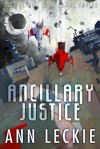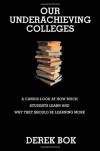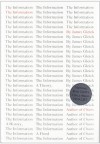Currently reading
McGlue
Knife Fight and Other Struggles
Far from the Tree: Parents, Children, and the Search for Identity
The Good Lord Bird
Ancillary Justice
Our Underachieving Colleges: A Candid Look at How Much Students Learn and Why They Should Be Learning More (New Edition)
Dissident Gardens
Nightmare Movies: Horror on Screen Since the 1960s
The Information: A History, a Theory, a Flood
Complete Novels
The Immensity of the Here and Now: A Novel of 9.11
 I'm waffling in my reaction to this book. I have a low tolerance for the familiar tics and quasi-narrative hiccups of avant-garde novels, which (kind of like karaoke singing, or people telling me their dreams) demand either a precise or a go-for-broke-crazy-ass performance in order to avoid my collapse into boredom. On the other hand, there's something refreshing in West's rejection of the conventions and closure of so many 9/11 narratives, something playfully perverse in his language games--giggling, slyly and sadly and scornfully and (sometimes) not-so-sanely, at Ground Zero.
I'm waffling in my reaction to this book. I have a low tolerance for the familiar tics and quasi-narrative hiccups of avant-garde novels, which (kind of like karaoke singing, or people telling me their dreams) demand either a precise or a go-for-broke-crazy-ass performance in order to avoid my collapse into boredom. On the other hand, there's something refreshing in West's rejection of the conventions and closure of so many 9/11 narratives, something playfully perverse in his language games--giggling, slyly and sadly and scornfully and (sometimes) not-so-sanely, at Ground Zero.Yet despite the trappings of formal play, the thematic and even plotted centers of the novel are resolutely familiar: a protagonist dealing with some unexplained trauma of his own, circles around and projects himself into the trauma of the events of (and following) September 11. The novel is more explicitly enacting the fragmentations of trauma, but that's a recurrent trope of these fictions; the character may have a foot in Beckett-land, and steers far clear of Dr. Phil, but this is nonetheless another well-heeled New Yorker shattered by (or in parallel to) the terrorist act. And so on.
My goodreads pal Marshall raised a question in his review of Middlesex about not needing another novel about X. Certainly worth asking of 9/11 fictions--I'd say we definitely need some more fertile, explosive, revisionist, surprising fictions. But is this one of 'em? Marshall's friend Jessica, in the entertaining comment thread on Middlesex (sort of around rather than "on" Middlesex) that ensued, said it's not the content of the story, however familiar, but how it's told. Yet (back to the waffling)... is this really a challenge to conventions if its "play" is entirely formal while its impact, meaning, central storyline all reinforce ye same olde trauma chatter?
I lean no. Then again, I'm kind of constitutionally disposed against the arty "challenge" to narrative, being all my life such a story whore. Maybe someone else would find West far more invigorating than me.
(It is--I'll say mysteriously, without defining my terms--intriguing to put West's old-school Modernist approach to narrative & loss & fragmentation against J. S. Foer's Postmodernist approach in Extremely Loud and Incredibly Close...)












